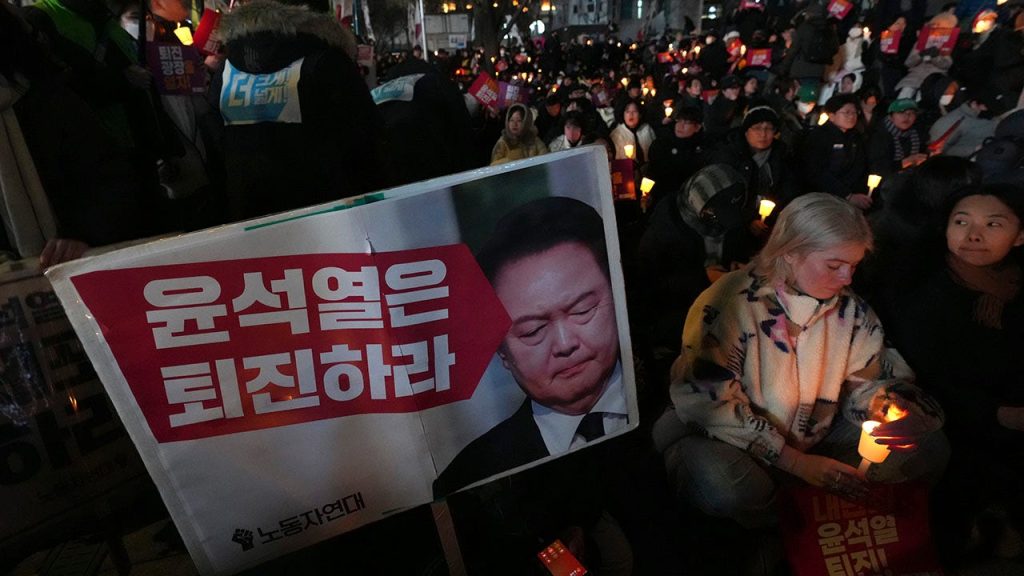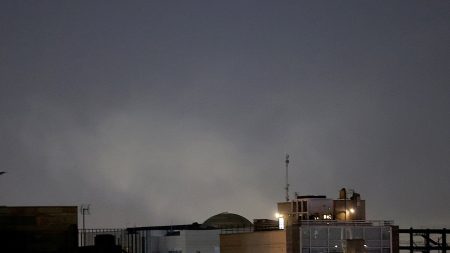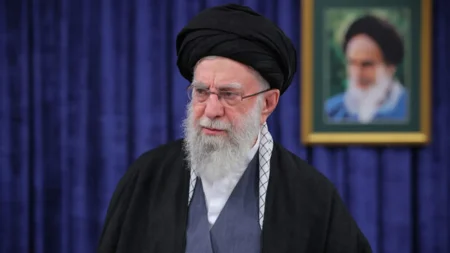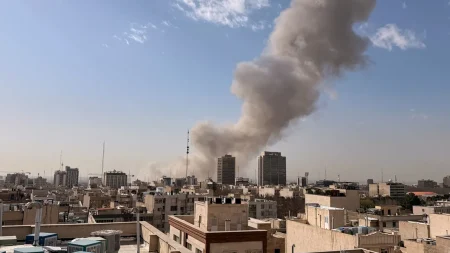South Korean President Yoon Suk Yeol’s recent decision to declare martial law in an effort to crack down on what he termed “anti-state” forces has sparked significant controversy and backlash. Experts, including Sung-Yoon Lee from the Wilson Center, describe the move as a “blunder” and suggest it may have been an attempt by Yoon to reaffirm his authority amid increasing opposition from political rivals. In response to the declaration, opposition parties are now pursuing impeachment proceedings against Yoon. This effort requires support from two-thirds of the National Assembly’s 300 seats, as well as a favorable ruling from at least six of the nine justices on the Constitutional Court, although there are currently only six justices due to recent retirements, with a majority of them appointed by Yoon himself.
The martial law declaration lasted a mere six hours, but its implications resonated deeply within South Korea, a country that has worked hard to distance itself from its military-backed authoritarian past. Such swift actions evoked memories of earlier regimes when similar declarations allowed for military presences on the streets in an effort to suppress dissent. Although the situation remained calm, with no significant violence reported, lawmakers quickly moved to reject the martial law in a unanimous vote, illustrating the rapid response from political institutions to safeguard democratic norms. Yoon’s announcement coincided with accusations against opposition parties, suggesting they were sympathetic to North Korea, a claim that could further heighten political tensions within the country.
Experts point out that the ongoing turmoil provides an opportunity for North Korea to exploit the situation. Lee notes that the North Korean leadership is likely to interpret these events to their advantage, potentially issuing provocative statements or engaging in hostile actions as a means to exert pressure on Yoon’s administration. Given the historical context of heightened tensions between the two Koreas, the situation stands to escalate as North Korea may capitalize on any perceived instability in the rival state, framing its own provocations as a justified response to Yoon’s governance.
Should Yoon face impeachment, the responsibilities of the presidency would fall to Prime Minister Han Duck-soo, who currently occupies the second-highest position within the South Korean government. The legal hurdles for impeachment, however, could prove challenging. To initiate Yoon’s ouster, the six remaining justices of the Constitutional Court would need to vote unanimously in favor of the motion—a significant threshold given that four of these justices owe their positions to Yoon’s appointments. The political dynamics surrounding this potential impeachment are further complicated by the perceptions of Yoon’s leadership effectiveness amid his reform initiatives, which the opposition parties describe as being obstructed by their actions.
Moreover, the recent escalation reflects broader themes within South Korean politics, highlighting the contentious relationship between the presidency and opposition factions. Yoon’s presidency has been characterized by a series of reform efforts met with staunch opposition, and his martial law declaration can be understood in this broader context of a struggling political landscape. The dramatic maneuver may have been an effort to regain control and signal his readiness to counter opposition challenges; however, it may instead deepen the fractures within South Korean governance.
In summary, Yoon Suk Yeol’s brief declaration of martial law has triggered a significant political crisis, drawing condemnation from opposition parties and prompting discussions of impeachment that underscore the fragile state of South Korea’s democracy. The internal and external pressures facing Yoon’s administration illustrate the challenges of navigating political reform in a nation still sensitive to its authoritarian past, while also dealing with the realities of a hostile neighbor in North Korea. As the situation progresses, the implications for Yoon’s presidency and the future of South Korean politics remain uncertain, revealing the intricate balance between authority, public perception, and the rule of law in one of Asia’s most dynamic democracies.















